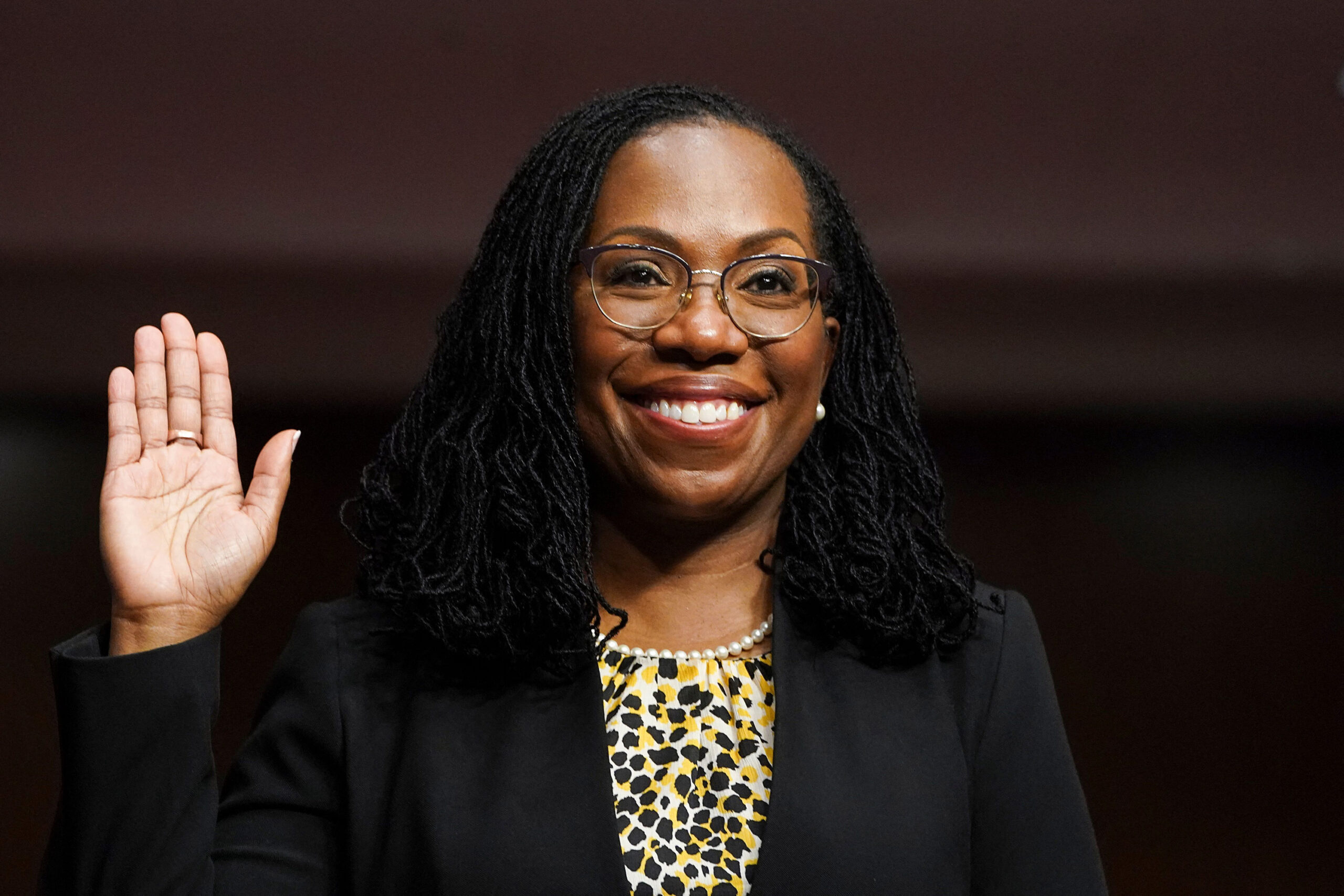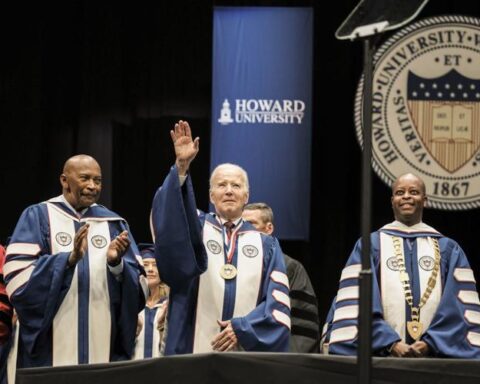Judge Ketanji Brown Jackson, President Joe Biden’s pick to fill a vacancy on a powerful DC-based appellate court, said at a Senate hearing Wednesday that her race doesn’t play a role in her work as a judge, but that her experience as an African American jurist “might be valuable” should she be confirmed to the post.
“I don’t think that race plays a role in the kind of judge that I have been and would be,” Jackson told the Senate Judiciary Committee in response to a question from Texas Republican Sen. John Cornyn. “I’m doing a certain thing when I get my cases. I’m looking at the arguments, the facts and the law. I’m methodically and intentionally setting aside personal views, any other inappropriate considerations, and I would think that race would be the kind of thing that would be inappropriate to inject into my evaluation of a case.”
But, Jackson said, “I’ve experienced life in perhaps a different way than some of my colleagues because of who I am, and that might be valuable — I hope it would be valuable — if I was confirmed to the court.”
The comments from Jackson come as she is being considered for a vacancy on the influential US Court of Appeals for the DC Circuit, which is seen as a breeding ground for potential Supreme Court nominees. Jackson, who currently serves as a DC district judge, is viewed as a, if not the, top candidate for a Supreme Court nomination should a current justice retire, according to Democratic officials.
Biden pledged during the campaign to name the first Black woman to the Supreme Court should a vacancy arise.
Republicans ask about size of the Supreme Court
Jackson was also pressed by Cornyn on whether she supports expanding the size of the high court, an idea some progressives have zeroed in on following the recent appointments of three conservative justices that have solidified the court’s 6-3 conservative tilt.
“Do you think Congress should add additional seats to the Supreme Court?” the Texas Republican asked her.
“Senator, as a sitting judge, I am bound by the Supreme Court, and I don’t think it’s appropriate for me to comment on the structure or size of the court any more than it would be for me to comment on the court’s rulings,” Jackson replied. “Regardless of the size, I would follow the precedents of the Supreme Court.”
Republican Sen. Marsha Blackburn of Tennessee went a step further, asking Jackson whether she would accept a possible Supreme Court nomination from Biden if the size of the court was expanded during his tenure.
But Jackson again avoided weighing in on the issue, saying: “I don’t think it’s appropriate for me to comment on proposals about the structure of the court, about expanding the court or anything of the sort.”
Jackson, who served as an assistant federal public defender as well as a commissioner on the United States Sentencing Commission before being appointed to her current post in 2013, was questioned at length by members of the panel on her experience as a public defender.
At one point she told chairman Dick Durbin, a Democrat from Illinois, that “there is a direct line from my defender service to what I do on the bench, and I think it’s beneficial,” noting that as a judge, she explains each step of the process so that a sentence she hands down has an impact on the convicted individual, something that she said she wasn’t seeing as a public defender.
Jackson’s nomination is supported by dozens of former Supreme Court clerks, Justice Department officials and law professors. In a letter sent by 35 former senior Justice Department officials and US attorneys to the top Republican and Democrat on the panel, the group said she possesses “a steadfast commitment to independence, impartiality, and integrity.”







